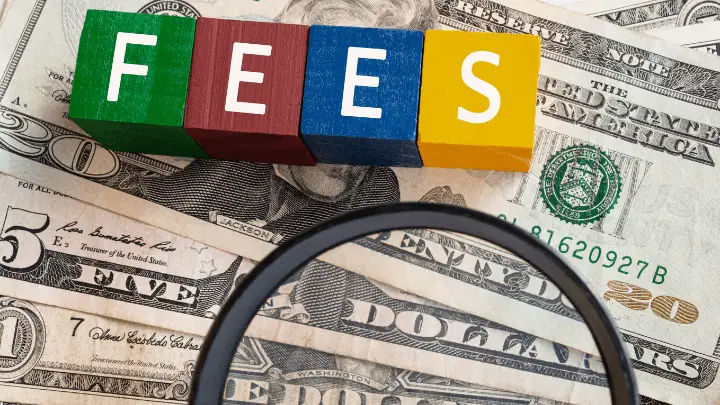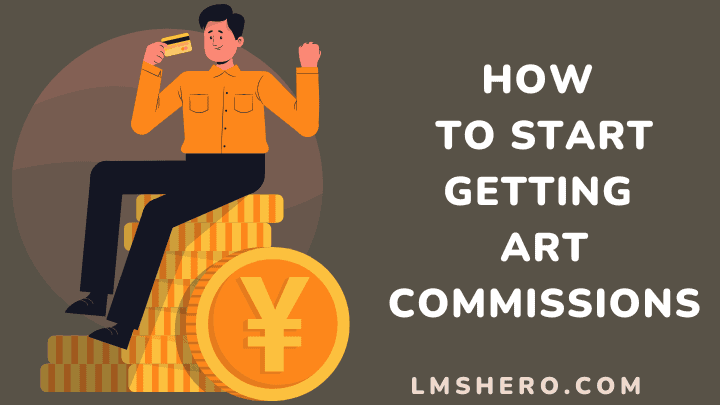As an artist, you want your work to be seen by many people. But getting commissions for your art is a challenging task. It can feel like a daunting process, one that is full of obstacles and limits.
Besides, finding the time and money to pursue your artistic goals is challenging, and muster the courage to send your work out into the world.
Luckily, there are plenty of ways to get started without breaking the bank or undertaking any extra risk.
In this article, I’ll provide practical tips to help you build your portfolio and get art commissions. I hope these will help you get started on becoming an accomplished artist.
It’s so easy to get stuck in your day-to-day routine. But to start getting art commissions, you must get out there and meet your clients while socializing with them.
The key here is to build a network of artists and clients and meet people in your community who can help advance your career.
For example, if you’re an artist who likes to draw manga, you can start by going to exhibitions related to anime.
During these exhibitions, you’ll meet other manga artists who share your passion for drawing manga and may want to collaborate with or just support you.
Many artists can’t find the time to network, but that’s because they’re afraid of rejection. But if you just do it—and practice good manners at all times—you won’t have a problem connecting with potential clients.
To get your art out into the world, you need to show it off. This means having a portfolio of your work, an active social media presence, and a website or blog that showcases your style and content.
Add images of your work to these sites and any other sites where you’ve been featured or mentioned about your art.
You should also keep track of what is being said about your work online so that you’re aware of any opportunities that may arise in the future.
You can also consider selling prints if you have any artwork with good-quality prints already in your portfolio. Even if it’s just one or two pieces, this is a great way to sell them.
3. Know your competition and stand out in your niche
Few artists get the chance to work on a project that’s truly one of a kind. This is why knowing your competition and standing out in your niche can help you start getting art commissions.
To stay on top of your game, you need to know your competitors, understand their techniques, and find ways to improve upon them.
When you’re familiar with what other artists are doing, it becomes easier to understand why their work appeals to you and vice versa.
This knowledge allows you to create work that stands out from the crowd and gets noticed by potential clients.
4. Go for quality over quantity
Many people think that the more art they produce, the better. The problem is that this approach leads to a never-ending cycle of chasing after quantity instead of quality.
The more work you do, the harder it becomes to produce good work, and your reputation worsens. This isn’t sustainable, and it won’t lead you anywhere but disappointment.
It’s much better to focus on producing just a few good pieces than churning out mediocre art. This way, you’ll be able to achieve the quality that impresses your clients.
In addition, you’ll be able to build your reputation as an artist instead of chasing after one-hit wonders.
5. Speak to artists you admire and ask for advice
Art is about communication. It’s about understanding what somebody is trying to say and then putting that feeling into a physical form. It’s also about how we interact with the world around us.
Don’t be afraid to ask for guidance – there’s no harm in trying something new, and getting some helpful pointers from someone who knows the ropes can make all the difference.
When you speak to artists you admire, you get their advice on improving your skills. You’re also learning to think more creatively and approach problems from a new perspective.
And that’s a skill that can help you get started in the art world.
6. Be willing to take on collaborative projects
A willingness to work collaboratively can be a gateway to gaining experience and receiving critical feedback, both of which are essential for developing your artistic skills.
The more challenging your projects, the greater the opportunity for growth. Working with other artists teaches you how to handle difficult situations, critique your work productively, and constructively share your ideas with others.
Being willing to take on collaborative challenges is an important part of developing your art career and getting commissions.
7. Attend art gallery openings
Whether a beginner or an experienced artist, attending art gallery openings can help broaden your horizon. Furthermore, it can open up new opportunities to explore new and exciting avenues in your artwork.
Many galleries are especially fond of showcasing new talent, so why not attend an opening and see what catches your eye? Next time you’re in the mood for cultured entertainment, why not check out an art gallery?
As you build relationships with the staff, you may be surprised at how fun and easy it is to start getting art commissions.
8. Price your work reasonably and be realistic

Pricing your work reasonably and being realistic can help you start getting art commissions. Contrary to popular belief, buyers don’t just snap up the most expensive pieces.
Artists’ pieces are generally priced according to size, complexity, credentials, and market conditions.
Getting your work into the art world takes time, effort, and a bit of luck. However, by pricing your work reasonably and being realistic, you’ll start on the path to becoming a successful artist.
And remember: always provide superior customer service. It will go a long way in building your reputation as an artist and helping you win repeat commissions.
9. Offer free consultations to potential clients
Getting started in the art can be difficult, but it doesn’t have to be. To get the ball rolling, offer free consultations to potential clients and show them that you’re committed to providing them with the art they desire.
The truth is that your first few consultations are crucial. They’re the opportunity for potential clients to get a feel for who you are and what you stand for as an artist.
By offering these consultations free of charge, you can weed out the ones who are serious about working with you. It’s also a great way to build relationships with people and bring them on as your regular clients.
10. Be prepared for rejection and criticism
Getting art commissions can be tough – but it’s not impossible. If you’re prepared for the rejection and criticism of submitting your work, you have a much better chance of success.
And that’s why I encourage everyone to be prepared for the inevitable critique. Rejection and criticism are part of the creative process – how we learn and grow.
If you’re afraid of them, you won’t be able to take full advantage of their potential to help you become a better artist. And that’s a loss: for you and the world.
FAQs
How long does it take to get art commissions?
It usually takes four weeks to three months to receive a commission for your artwork. Nonetheless, the duration may vary depending on the piece, location, and more
Do artists receive pay before or after an art commission?
Depending on the contract, an artist may receive a commission before or after they are paid. However, most artists receive half their payment before and the balance after completing the piece.
How can artists avoid getting scammed when looking for art commissions?
You can avoid getting scammed by doing your research. Talk to artists you trust and ask for references. Be transparent about your budget and expectations.
Final thoughts
Getting your artwork out into the world can be a daunting task. But by following these simple tips, you should be armed with all the information you need to get art commissions.
Start by networking with established artists and art institutions. Then, build a portfolio that showcases your best work.
Additionally, be prepared to offer your services at a price that resonant with your target audience. And finally, stay positive and persistent.
Art is subjective, so don’t be discouraged if your work isn’t immediately accepted. With the right approach, it will eventually pay off.
The art trade also allows artists to build relationships and networks. It creates an excellent room also to start getting commissions.
I wish you all the best as you explore your options to start getting art commissions.
Thanks for reading.






